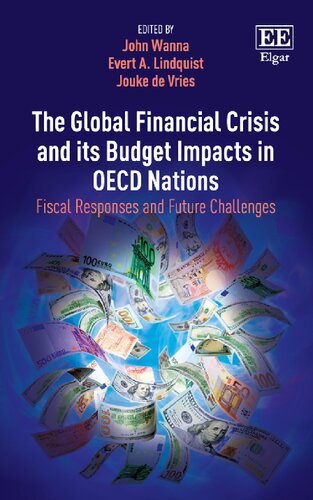

Most ebook files are in PDF format, so you can easily read them using various software such as Foxit Reader or directly on the Google Chrome browser.
Some ebook files are released by publishers in other formats such as .awz, .mobi, .epub, .fb2, etc. You may need to install specific software to read these formats on mobile/PC, such as Calibre.
Please read the tutorial at this link: https://ebookbell.com/faq
We offer FREE conversion to the popular formats you request; however, this may take some time. Therefore, right after payment, please email us, and we will try to provide the service as quickly as possible.
For some exceptional file formats or broken links (if any), please refrain from opening any disputes. Instead, email us first, and we will try to assist within a maximum of 6 hours.
EbookBell Team

4.0
66 reviewsThe global financial crisis of 2007-09 constituted the biggest shock to the economies of the OECD nations since the Second World War, testing budgetary systems and causing most of their governments to move into intense crisis mode. Policy responses by governments and international authorities included massive interventions to stabilize markets and economies, and significant adjustments to fiscal policy regimes. How governments reacted to the crisis, which was manifested differently in each jurisdiction, had significant political implications for sitting governments and led to reforms of fiscal policy and budgetary regimes, which have since continued to wrestle with slow economic growth and strained public finances.
This singular shock provides the editors and authors of this book with an intriguing opportunity to examine how different OECD budgetary systems performed. The contributions frame and assess how governments responded to the challenge and how their budget systems evolved in the aftermath, with a focus on strategy, decision-making and balancing competing demands. Chapters cover the EU, North America and Asia, including comparison between countries that fared well, those who were moderately affected and those countries massively affected by the global financial crisis.
This timely book will appeal to students and academics seeking an international understanding and analysis of the effects and consequences of the global financial crisis.
Contributors: M.G. Arghyrou, R. Boyle, S. Davidsen, T. Degen, D.M. Fantone, D.A. Good, M. Horie, L. Jensen, E. A. Lindquist, M. Mulreany, P.T. Pereira, P.L. Posner, J. de Vries, J. Wanna, L. Wemans, E. Zapico-Goñi